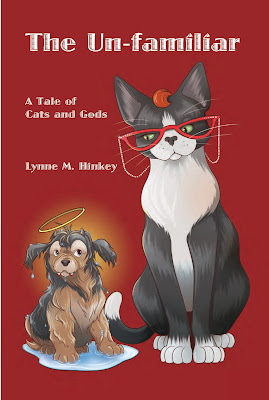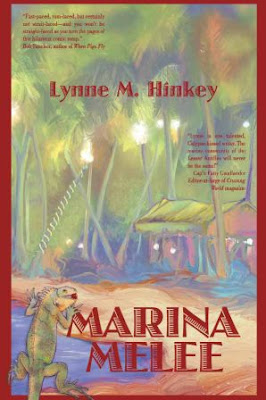How did Rick Bylina remain dedicated for nearly two years to completing and publishing "Kill All Cats"?
I knew the moment my pregnancy began.
On June 26, 2014, at 4:33 p.m., the lamenting had reach fever pitch in a private authors-only Facebook group about the lack of our book sales and the banning of books. My mind darkened to match the stormy skies outside. Creative thoughts sparked my fingers. Charged, they skittered across on the keyboard. "I’m going to write something so horrific that thousands will ban it and millions will buy it to protest the banning."
My words garnered a few LOLs. And then, an efriend launched a dozen pictures of cats onto my Facebook page. The images flowed like kitty porn designed for an excitable alley cat.
I like animals but couldn’t abide the cat stampede. I groaned. Then, I gripped the arms of my chair as all the synapses in all the corners of my engorged brain erupted with spasmodic writer euphoria. Idea penetration had been achieved. I gasped as my brain cells formed the story idea zygote about an isolated man, telepathically controlled by a cockatiel, who goes on a wild killing spree to rid the world of cats. My oblivious cockatiel slept on my knee at that moment, at least, I think he slept.
After 5,000 words in the next few hours and several thousand the following morning, I paused for a long pull on a coke or possibly bourbon. I don’t remember in the afterglow of plot lust. In the ebb of writing ecstasy, I savored the moment because I couldn’t usually keep it up that long. Then I realized, my brain coveted an idea to which I could never do justice. Steven King had never composed anything as macabre as I had penned in that writing orgy.
My twenty-three-month gestation conundrum had begun.
I had to accept my limitations as a writer based on my experience, ability to research, and personal tastes; I needed to stretch my boundaries to create a break-out novel. I wanted a noteworthy book, especially when I could envision a rich story complete in every element of style. I revised and feed the story language that reflected aspects of great writing that I had learned about and honed over the years. I saw the language didn’t need the verbs “was” and “were” to be vibrant, thoughtful, and intriguing.
I fleshed out the plot organically and revised as needed, looped-back on touchstones, hid clues in plain sight, and gave each character achievable goals and the motivation to go after them. I relived the thrill of idea conception as each new chapter grew, and I remembered to stay true to the core story idea.
The need to strengthen the motivation of the protagonist, Ron, arose. I gave him a horrific background to make his nature understandable and provide him room to grow and mature, or fall into a meaningless life. I added humor as his cockatiel, Brisbane, morphed from a malevolent bird to a humorous sidekick, blissfully parroting appropriate clichés from crime shows and movies, which he watched 24/7. I made Ron and Brisbane co-dependent in a way that only someone who had faced despair could truly understand and then made the emotion available for all readers.
I added intrigue, but the story needed more. I erected the pillars of romance for Ron as I tightened the screws to his situation, building his strength and knowledge for the final showdown against a host of powerful villains and gut-check situations. Endless editing, constant rewrites, alpha and beta reader comments, editorial face slaps, cover design hiccups, production deadlines, and executing the marketing plan followed.
Twenty-three months after conception, I gave birth to Kill All Cats, a novel unexpectedly beautiful in my eyes, and I hope in yours.
Rick Bylina
The only rule: Writers write! Everything else is a guideline.
Rick has been a member of Internet Writing Workshop for many years, and is well known and beloved for the unstinting support and encouragement he gives to fellow IWWmembers and for his advice, and delightfully unique sense of humor.
I'm Rick the author man
I write all the words I can
I shuck the adverbs
Embrace power verbs
I'm Rick the author man.
Kill All Cats was the featured book July 8,2016 on the North Carolina Writers' Network, (4,000 members strong) BOOK BUZZ site.
Mel Jacob's review of Kill All Cats is up at Gumshoe Mystery Review.
Sunday, August 7, 2016, Kill All Cats will have its world premiere public reading at The Joyful Jewel (art and book store) in Pittsboro, NC from 4:00 p.m. to 5:00 p.m.
Find more Rick Bylina books at Amazon.
NOVELS: One Promise Too Many, A Matter of Faith, All of Our Secrets .
POETRY: Poems for a Platypus FLASH FICTION: Bathroom Reading.

.jpg)


